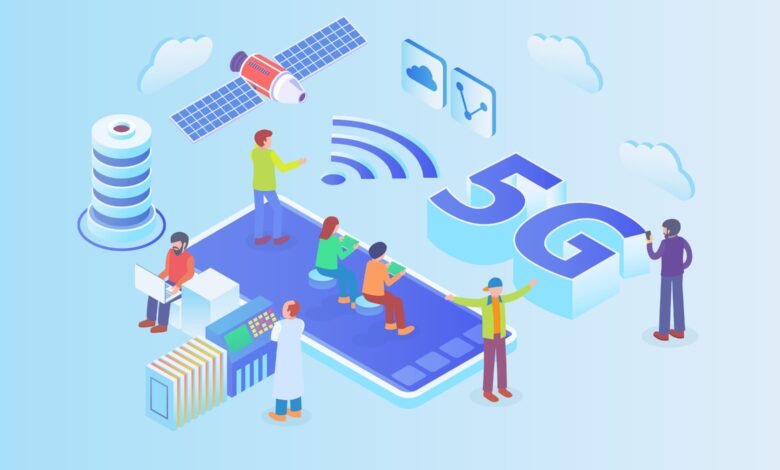The Future of 5G Technology?

Introduction
This article will look at the possible effects of technology on many industries and daily life in the future of 5G. With speed, capacity, and low latency improvements, the fifth wireless technology generation, or 5G, is expected to transform connectivity completely. Let’s explore the developments and opportunities that 5G technology will bring in the future.
Increased bandwidth and speed
Users can anticipate higher download and upload speeds with 5G than earlier versions. High-definition entertainment will be streamed without interruption, file transfers will be quicker, and real-time communication will operate without interruption.
IoT Revolution: The Internet of Things
One of 5G’s most important contributions is its ability to facilitate the quick expansion of the Internet of Things (IoT). Low latency and the massive bandwidth of 5G will make seamless communication possible. From smart homes and cities to autonomous vehicles and industrial automation, 5G will power the IoT revolution.
Enhanced Mobile Experiences
5G technology will enhance the mobile experience in various ways. Customers will benefit from improved video conversations, smoother video streaming, and applications for immersive augmented and virtual reality (AR/VR). Also, mobile gaming will reach new heights with reduced latency and enhanced responsiveness.
Advancements in Healthcare
The healthcare industry is anticipated to grow a lot from 5G technology. Because of its highly dependable and low-latency connection, 5G can enable remote surgeries, telemedicine consultations, and real-time patient monitoring. It will allow faster and more accurate medical data transmission, enhancing the precision of diagnosis and the efficacy of therapies.
Autonomous Vehicles and Smart Transportation
5G’s high speed and low latency will be crucial in developing and deploying autonomous vehicles. It will enable real-time communication between vehicles, traffic infrastructure, and pedestrians, leading to safer and more efficient transportation systems. Additionally, 5G will support intelligent traffic management, reducing congestion and improving overall traffic flow.
Industry 4.0 and Smart Manufacturing
5G technology will accelerate the implementation of Industry 4.0 and intelligent manufacturing processes. With its ultra-reliable and low-latency connections, 5G will enable real-time monitoring and control of machines, predictive maintenance, and seamless integration of robots and automation. It will boost output, effectiveness, and adaptability in manufacturing processes.
Expanded Opportunities for Virtual Reality and Augmented Reality
Combining 5G and virtual reality/augmented reality (VR/AR) will unlock new possibilities. With low latency and high bandwidth, immersive VR/AR experiences will become more accessible and seamless. It will affect various fields, including gaming, education, training, and remote collaboration.
Smart Cities and Infrastructure
5G will be crucial for smart cities and infrastructure development. It will support smart grids, efficient energy management, intelligent transportation systems, and real-time monitoring of urban resources. This connectivity will enhance sustainability, improve resource allocation, and enable better decision-making for city planners and administrators.
Privacy and Security Considerations
As 5G technology proliferates, ensuring privacy and security will be crucial. With the vast number of interconnected devices and data exchange, robust cybersecurity measures will be necessary to protect against potential threats and vulnerabilities.
Conclusion
The future of 5G technology is bright and holds immense potential for transformative change. From faster connectivity and IoT integration to healthcare, transportation, manufacturing, and entertainment advancements, 5G will reshape various industries and enhance our daily lives. As the deployment of 5G continues, it is essential to address the challenges and ensure the benefits are accessible to all. It will boost output, effectiveness, and adaptability in providing widespread coverage and prioritizing equitable access to 5G.






